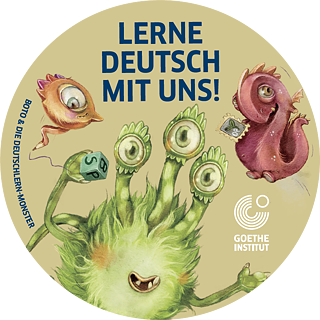Teacher shortage
Self-learning: Can we do without teachers?

Learners with self-regulation skills learn more efficiently – at school and later in life, too. But is that possible with fewer teachers?
By Janna Degener-Storr
Self-regulation:
Learners who self-regulate their learning processes can actively think about and control them. They seek to improve their own results by means of self-learning processes and strategies that they believe in.
Task-based language learning:
Task-based language learning (TBLL) may also be called “activity-oriented learning”. It involves assigning challenging tasks that give learners ample opportunity for verbal interaction with one another, which, in turn, activates their cognitive and linguistic capacities.
Learners who self-regulate their learning processes can actively think about and control them. They seek to improve their own results by means of self-learning processes and strategies that they believe in.
Task-based language learning:
Task-based language learning (TBLL) may also be called “activity-oriented learning”. It involves assigning challenging tasks that give learners ample opportunity for verbal interaction with one another, which, in turn, activates their cognitive and linguistic capacities.
“Pupils working independently in small groups and over extended periods of time on tasks that involve considerable interaction are more likely to be able to do without a teacher than those in highly teacher-centred classes,” observes commission member Michael Becker-Mrotzek, the director of the Mercator Institute for Literacy and Language Education. But this kind of learning requires self-regulation skills, the commission points out: kids must first learn to control their own learning processes by monitoring and thinking about their learning behaviour.
Task-based German language learning
The commission’s recommendations refer to a study by Lara Bryfonski, an assistant professor of applied linguistics at Georgetown University in the US. She is sceptical, however, as to whether TBLL or teaching self-regulation skills will actually free up teacher resources. Working with this new method requires special training, she points out. Furthermore, depending on the approach, teachers need to identify language-learning needs and develop suitable tasks, assess learning progress and provide individual feedback: “Tapping into learners’ self-regulation could help boost their independence,” observes this expert in second-language acquisition, “but training teachers and learners to use these techniques would also take time and energy.” She also notes that it’s harder to use TBLL for big classes.One example of a TBLL assignment is to give a bunch of learners various versions of the same street map, with different information missing on each map, and have them write up directions in German on how to get to a certain destination. So they have to work together to find out, for example, which streets are closed for traffic. “Learners won’t concentrate on using correct grammar or the right vocabulary, but on communication,” explains Bryfonski. “Nevertheless, they’re likely to make mistakes or experience communication breakdowns, and that’s precisely how important words and forms are learnt.” As in a “flipped classroom”, the teacher can slip into the role of a moderator, advisor or coach and give the learners feedback or hold a “reflection session” to help them identify forms they need to perform the task. The teacher can also instruct learners in ways of giving feedback to one another themselves, improving communication with one another and making use of self-regulation and learning strategies. But it takes time and know-how for teachers to do this effectively.
Learning to read with FiLBy
Fachintegrierte Leseförderung Bayern, or FiLBY for short, is a project that shows ways of imparting self-learning skills to schoolchildren at an early age. Seven years ago, the University of Regensburg, in association with the Bavarian Ministry of Education, began developing a three-year course of literacy training that extends over three school years. And it includes the acquisition of literacy strategies embedded in a programme of self-regulation training beginning in the fourth grade. FiLBY is based on various studies, including those of American education researchers Steve Graham and Karen Harris.Like task-based language learning, FiLBY training involves tasks that challenge learners without overwhelming them, as well as providing support in the form of constructive feedback. Each lesson comprises a reading assignment and comprehension questions.
Setting a goal:
Before reading the text in question, the schoolchildren themselves should estimate how many of the questions they’ll be able to answer and set themselves a goal, for example: “My goal today is to answer two of the reading comprehension questions correctly.”
Choosing a strategy:
Then they choose a strategy to achieve that goal.
Assessment:
After reading, they assess whether the chosen strategy enabled them to achieve their goals and, on that basis, whether they should stick to it or try another strategy.
Self-evaluation:
Lastly, after completing the assignment, the children evaluate how good a job they did and, on that basis, decide what approach to take to learning the next lesson.
Anita Schilcher, a professor of German language and literature teaching, explains, “We teach kids not to go about assignments haphazardly, but always to think about the goal they want to achieve and the strategies best suited to actually achieving that goal and steadily improving.” Furthermore, weekly feedback sessions are held with classmates and teachers. In previous literacy programmes (Burg Adlerstein-Lese- und Schreibtraining), the University of Regensburg has likewise encouraged children to monitor the progress of their own skills acquisition processes – an approach that has yielded good results.
The university worked together with the Arbeitskreis Lesen (literacy task force) of the Staatsinstitut für Schulqualität und Bildungsforschung (ISB, State Institute for School Quality and Educational Research) and various researchers in teaching methodology to develop the reading material used in the FiLBY programme, as well as a free online tool for gauging text comprehensibility. The first evaluations to be conducted so far show that children’s reading skills improve more with FiLBY training than without it.
Learning how to learn: acquiring strategies
But success here, too, largely depends on the teacher’s competence. As educationalist Anita Schilcher puts it, “The teacher has to put the strategies across and make sure each pupil understands them and consciously applies them.” Besides special training in this area, she adds, it’s important for teachers themselves to be convinced of the importance of their work and the training. Schilcher can well imagine that FiLBY training and materials could help to professionalize lateral entry into the primary school teaching profession. On the other hand, she’s not sure the project can enable schools to cut down on teaching staff in the long run: “If I self-regulate my learning, I will learn, on the whole, more effectively. Over the long term, it will become automatic. But we still need teachers to teach the strategies for each individual learning process.”So, FiLBY literacy training improves the self-regulation skills of primary school pupils, thereby fitting them out with an important skill for learning foreign languages later on. And the use of TBLL in FiLBY training can help learners develop these abilities, which they’ll need their whole lives’ long. On the other hand, it’s highly unlikely that such approaches will offset the shortage of teachers.
Literature
Lara Bryfonski and Alison Mackey: The Art and Science of Language Teaching. Cambridge University Press
Lara Bryfonski and Alison Mackey: The Art and Science of Language Teaching. Cambridge University Press

